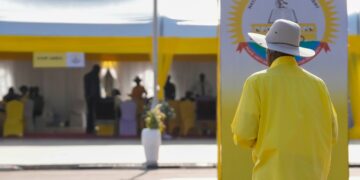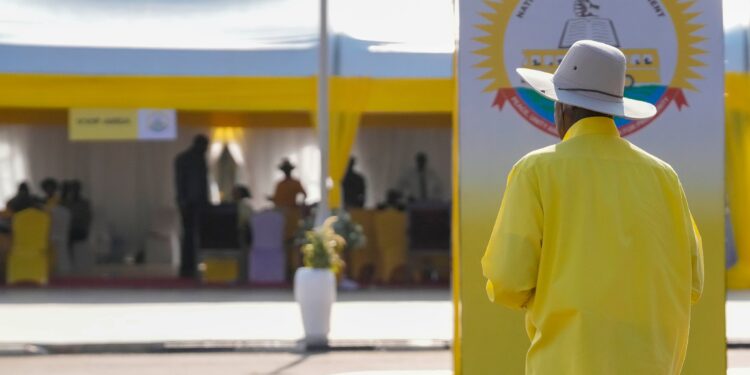President Yoweri Kaguta Museveni has reiterated the National Resistance Movement’s (NRM) core ideology and cautioned against divisions between old and new members, describing such tendencies as both “insulting” and “strategically dangerous.”
In a statement issued to the nation on Saturday, the President congratulated the NRM fraternity for the near conclusion of the ongoing internal exercises that began on May 6, 2025, with the auditing of membership registers.
“In my village of Rwakyitura, on the register we originally had 350 members. However, when we audited those who had migrated, died, etc., we remained with, I think, 251. It was so beautiful,” Museveni revealed. “In the end, in the whole country, we had more than 20 million members of whom 18.5 million were of the voting age of 18 years.”
The exercise culminated in two major conferences held at Kololo, with only the youth elections still pending. During these meetings, Museveni said key ideological and strategic questions arose, prompting him to restate the NRM’s guiding principles.
“The NRM ideology is based on the four principles of patriotism (love Uganda); Pan-Africanism (love Africa); socio-economic transformation; and democracy,” he explained. “Our politics has been politics of interests rather than politics of identity (religion or tribes).”
On the recurring debate over whether long-serving members should have higher status than new entrants, Museveni dismissed the idea, saying political organisations thrive by embracing all who join.
“Strategically, it would be insulting and repulsive to have two types of members: the old and the new. How can you treat people who come to reinforce you as if they are squatters?” he asked, warning that similar mistakes in Uganda’s political history had weakened parties like the Democratic Party (DP) in the 1980s.
The President drew from both scripture and his personal political journey to emphasise equality within political organisations. “My memory keeps bringing back the words: ‘In the Kingdom of God there is no young, there is no old.’ In political parties, all members should be equal,” he stressed, quoting from the parable of the workers in the vineyard (Matthew 20:1-16).
Museveni also recalled his own shifts in party allegiance, first with the Democratic Party in the 1960s and later distributing Uganda People’s Congress (UPC) cards in Ankole. He warned that political leaders who fail to recognise the value of new members risk undermining their organisations.
“Oyorora zoona, tomanya erahiigye,” Museveni said in Runyankore, meaning, “When the puppies are young, you feed all of them equally because you do not know which of them will be a better hunting dog.”
He noted that the strength of the NRM will depend not on exclusionary politics but on the ability of members—new and old—to focus on solving citizens’ problems through government programs such as the Parish Development Model (PDM) and Emyooga.
“If the senior members of the NRM prioritise the kukyenuura of the people (solving the people’s problems), there is no way the newcomers can outshine them,” Museveni assured.
The President concluded by pledging to address organisational matters, including corruption, in his next address. “Next time, I will talk about the organisational issues – including corruption,” he said.











